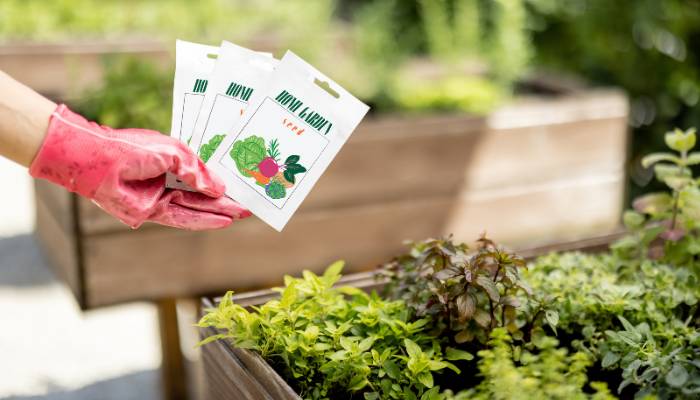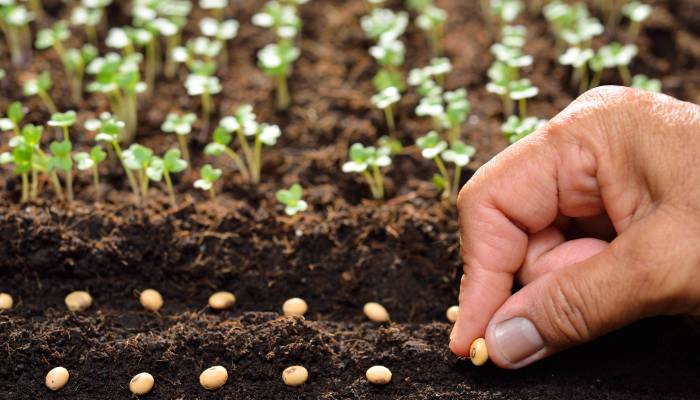
Gardening has always been an integral part of Indian culture, and Indian vegetables are known for their unique flavors, textures, and nutritional benefits. If you’re an Indian living in the USA or simply someone interested in growing Indian vegetables, you may be wondering where to find Indian vegetable seeds in the USA. In this blog post, we’ll explore the different types of Indian vegetable seeds available in the USA, where to find them, and offer tips for growing and caring for them. Whether you’re a seasoned gardener or a beginner, this guide will help you incorporate the flavors and traditions of India into your own backyard.
Benefits of Growing Indian Vegetables
Growing Indian vegetables in the USA offers a range of benefits, from nutritional to cultural. Here are some of the key benefits of growing Indian vegetables:
Nutritional benefits: Indian vegetables are known for their high nutritional value and are rich in vitamins, minerals, and antioxidants. They are also low in calories and high in dietary fiber, making them an excellent choice for maintaining a healthy diet.
Culinary benefits: Indian vegetables are a key ingredient in many traditional Indian dishes and offer a unique and delicious flavor profile. By growing your own Indian vegetables, you can experiment with new recipes and enjoy fresh, homegrown produce in your cooking.
Cultural benefits: Growing Indian vegetables can help you connect with your cultural heritage and pass on traditional cooking techniques and recipes to future generations. It can also be a way to share your culture with others and introduce them to new and exciting flavors.
Overall, growing Indian vegetables is a great way to add variety to your diet, experiment with new recipes, and connect with your cultural heritage. With their unique flavors and nutritional benefits, Indian vegetables are a valuable addition to any garden.

Types of Indian Vegetable Seeds Available in the USA
There are several types of Indian vegetable seeds available in the USA. Here are some of the most popular:
Okra: Okra is a staple in Indian cooking and is used in many dishes, including curries, stews, and soups. It is a warm-season crop that thrives in hot and humid conditions, making it a good choice for gardens in the southern United States.
Eggplant: Indian cuisine often uses Indian eggplants in curries, stews, and pickles because they have a unique flavor that is well-suited and are smaller and more tender than their American counterparts.
Beans and Gourds: People often use Indian beans and gourds in curries and stir-fries because they come in a wide variety of shapes and sizes.. Some popular varieties include snake gourd, bitter gourd, and yard-long bean.
Others: Other Indian vegetables that are popular in the USA include curry leaves, cilantro, and fenugreek. People often use these herbs and spices to add flavor to Indian dishes, and they can grow them in pots or containers.
Factors to Consider Before Planting Indian Vegetable Seeds
Before planting Indian vegetable seeds, there are several factors to consider to ensure a successful and productive harvest. Here are some key factors to keep in mind:
Climate and Growing Conditions: Indian vegetables typically thrive in warm, humid environments, so it’s important to choose varieties that are well-suited to your local climate. For example, okra and eggplant are warm-season crops that need plenty of heat and sun to grow, while some gourds may require more shade.
Soil Preparation: Indian vegetables prefer well-draining soil that is rich in organic matter. Before planting, prepare the soil by adding compost or other organic matter to improve soil fertility and drainage.
Seed Quality: High-quality seeds are essential for a successful harvest. When choosing seeds, look for varieties that are disease-resistant and well-suited to your local climate and soil conditions.
Planting Time and Schedule: Indian vegetables have specific planting times and schedules, so be sure to research the ideal planting dates for your chosen varieties. Some vegetables may also require multiple plantings throughout the growing season.
By considering these factors before planting Indian vegetable seeds, you can help ensure a successful harvest and enjoy a bountiful crop of delicious, fresh produce.

Where to Find Indian Vegetable Seeds in the USA
Indian vegetable seeds can be found in many specialty seed stores and online retailers throughout the USA. Here are some popular options for sourcing Indian vegetable seeds:
Indian Grocery Stores: Many Indian grocery stores carry a selection of vegetable seeds that are popular in Indian cuisine. This is a great option if you prefer to shop in person and want to support local businesses.
Online Seed Retailers: There are several online retailers that specialize in exotic and heirloom vegetable seeds, including Indian varieties. Some popular options include Baker Creek Heirloom Seeds, Seeds of India, and Sustainable Seed Company.
Seed Exchanges and Swaps: Seed exchanges and swaps are a great way to connect with other gardeners and share seeds. Some online gardening communities, such as Reddit’s Seed Swap, offer forums for exchanging seeds.
Gardening Clubs and Organizations: Local gardening clubs and organizations may also offer seed exchanges or have members who specialize in growing Indian vegetables. Joining a gardening group can be a great way to connect with like-minded individuals and learn from experienced gardeners.
By exploring these different options, you can find the best sources for Indian vegetable seeds that fit your needs and preferences.
Tips for Growing Indian Vegetable Seeds
Growing Indian vegetable seeds can be a rewarding experience, but it requires some specific knowledge and care. Here are some tips to help you grow healthy and productive Indian vegetable plants:
Choose the Right Varieties: Choose seeds that are well-suited to your climate and soil conditions because not all Indian vegetable varieties are suitable for all growing regions. Research the ideal growing conditions for your chosen varieties and plant accordingly.
Prepare the Soil: Indian vegetables prefer well-draining soil that is rich in organic matter. Before planting, prepare the soil [1] by adding compost or other organic matter to improve soil fertility and drainage.
Water Regularly: Indian vegetables require regular watering to thrive, especially in hot and dry conditions. Water deeply and consistently to ensure that the soil stays moist but not waterlogged.
Provide Adequate Sunlight: Indian vegetables need plenty of sunlight to grow and produce fruit. Choose a planting location that receives at least six hours of direct sunlight per day.
Use Fertilizers: Indian vegetables benefit from regular fertilization, especially with nitrogen-rich fertilizers. Apply a balanced fertilizer once a month during the growing season to ensure healthy growth and fruit production.
Control Pests and Diseases: Indian vegetables can be susceptible to pests and diseases, so take steps to control these issues. Use organic pest control methods whenever possible, and remove any infected or diseased plants immediately to prevent the spread of disease.
By following these tips, you can successfully grow healthy and productive Indian vegetables and enjoy a delicious harvest of fresh produce.
Conclusion
Growing Indian vegetable seeds in the USA can be a fun and rewarding experience for gardeners looking to explore new varieties of produce. By choosing the right varieties, preparing the soil, providing adequate sunlight and water, using fertilizers, and controlling pests and diseases, you can grow healthy and productive Indian vegetable plants in your own backyard. Whether you source your seeds from Indian grocery stores, online retailers, seed swaps, or gardening clubs, there are many options available for finding the perfect seeds to fit your needs and preferences.

Welcome to MithilaConnect, where we curate the art of living, celebrating the vibrant tapestry of life through culture, fashion, food, and everything in between.
